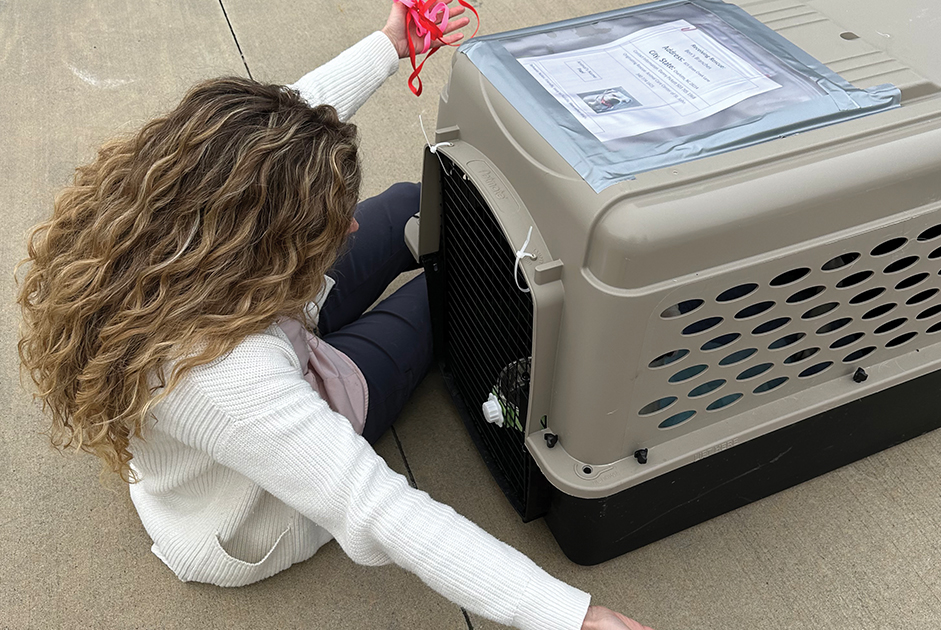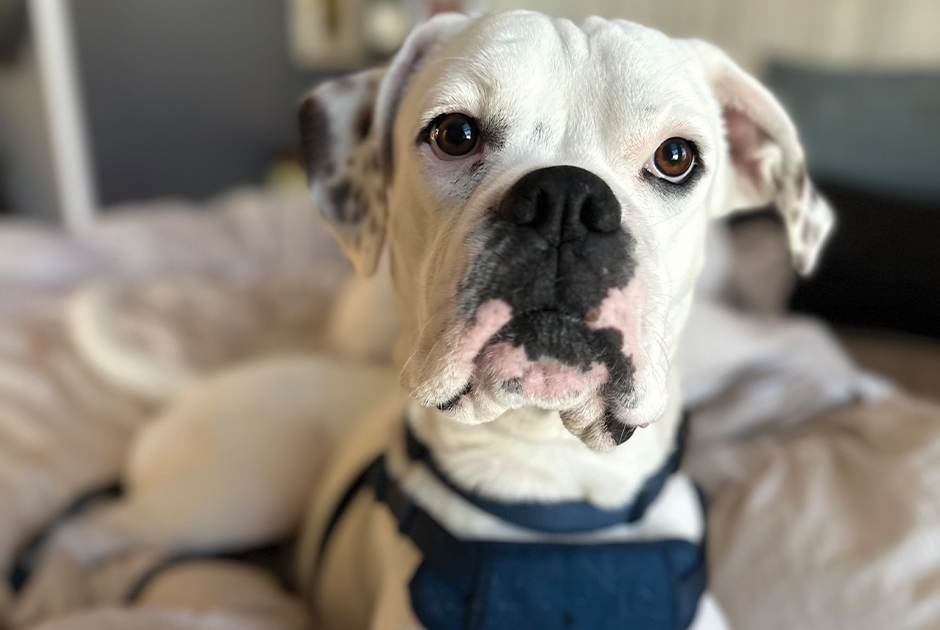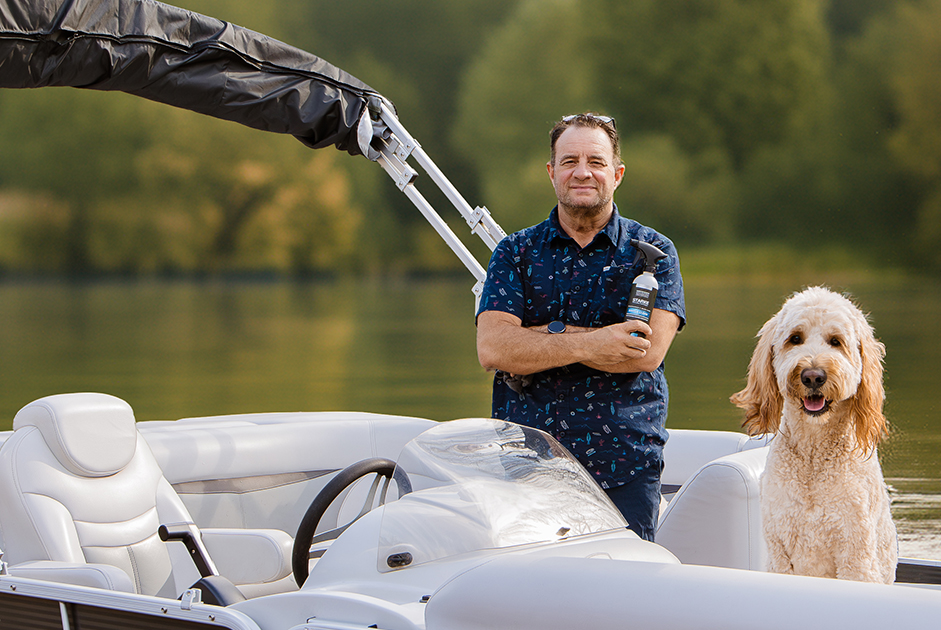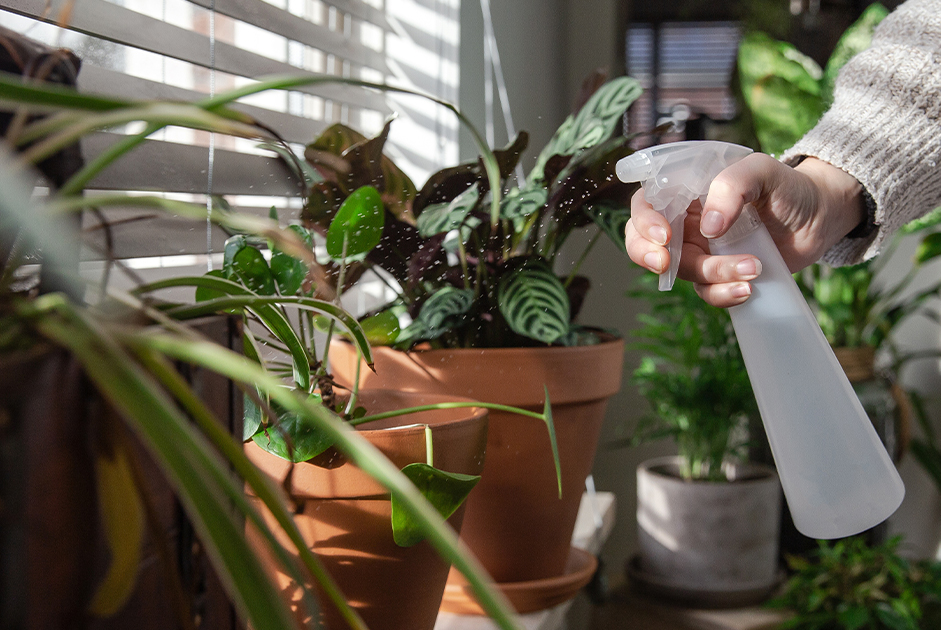From Island Stray to Mooresville’s Darling: Papi’s Journey of Hope
Photography & Story by JAIME GATTON
Just a few months ago, Papi was roaming the Caribbean island of St. John with no home or family to call his own. On neighboring St. Thomas, 400 animals were crammed into a shelter meant to hold only 70.
While many humans dream of island living, it presents serious challenges for stray and abandoned animals. Like Papi, many dogs in the U.S. Virgin Islands have heartworm disease. Natural disasters like Hurricanes Irma and Maria – the two category five hurricanes that devastated the islands in 2017 – displace pets from their homes and families. Since the islands are surrounded by water, resources are limited. While island guests are potential adopters for shelter animals, the logistics and costs of traveling home complicate things.
Similar to stateside animal shelters, when USVI shelters face overcrowding, they have to make room. For the veteran four-legged shelter inhabitants, that could mean mass euthanasia.
Fortunately for Papi and his USVI friends, it meant a mass exodus.
On February 8th, animal advocates – including NC non-profit Ben’s Branches, St. Thomas’ Pets With Wings, Last Chance Air in Statesville, Whole Pet Vets in Davidson and Mooresville’s Lake Norman Humane and Piedmont Animal Rescue – worked tirelessly to transport 400 “coconut retrievers,” cats and “island hoppers” (bunnies) from USVI to the U.S. mainland. It was a miracle for the animals that were at risk of being euthanized exactly one week later.
The group of advocates emptied the overcrowded St. Thomas shelter and rescued homeless dogs like Papi from St. John and Tortola. Within 24 hours, all 400 animals were loaded in crates on Last Chance Air freedom flights, two of which were bound for the Statesville Regional Airport.
Rescues along the east coast – many, like LKN Humane, facing overpopulation crises of their own – offered to take in the island animals. Despite being full, when LKN Humane Director Dana Kelley received the call asking for help, she immediately agreed. “They said ‘We have this need,’ and I said, ‘Yes’…then I panicked the next day,” she said, smiling. LKN Humane took in 10 dogs, all of which were heartworm positive.
Treating heartworm is a grueling and expensive – but lifesaving – process. Through Whole Pet’s Global Outreach program, Dr. Nicole Sheehan and her staff not only took in cats and bunnies to adopt out to the community but donated services and medication for the local animals, as well, including spays/neuters and heartworm treatment. Piedmont Animal Rescue took in island cats and transported animals to and from veterinary care.
When the animals first arrived in Statesville from USVI, Dr. Sheehan and her team helped unload crates from the airplanes and made rounds to check on everyone. That’s when Sheehan first met Papi, a two-year-old American bulldog whose wagging tail excitedly thumped against the interior walls of his crate. “You’re here! You made it!” Dr. Sheehan exclaimed, her arms outstretched. “You are alive!”

But to keep Papi alive, he would need heartworm treatment, which meant keeping the fun loving, spunky bulldog calm for several weeks.
According to the American Heartworm Society, heartworms are transmitted through mosquito bites and live in the heart, lungs and associated blood vessels of infected animals (usually dogs). Easily preventable, heartworm disease can lead to lung disease, heart failure and organ damage that can affect a dog’s quality of life even after the parasites die.
Physical exertion during treatment could cause many heartworms to die at once, leading to blood clots in the lungs or anaphylaxis, both of which can be life threatening for dogs. The higher the heartworm load, the more a dog’s activity should be restricted, and Papi had a heavy load according to Emily Frammartino, veterinary assistant and hospital manager for Whole Pet Vets. His liver enzymes were also high – possibly an indication of heartworm damage – so he’s now on a daily supplement for liver health.
While Papi experienced a couple “down days” during his first heartworm treatment, Frammartino said he’ll recover just fine. “Once he’s through his treatment, he gets to be a normal dog and live a normal life,” she said.
Papi is currently living his best life in Mooresville. Nearing the end of his rest period post treatment, he’s anxiously waiting to run and play with his six foster siblings.
LKN Humane has coconut retrievers for adoption, and Ben’s Branches, which works with rescue groups and volunteers in the U.S., Puerto Rico and the Caribbean, said 20 island pups still need rescue placement, foster homes or adoptive families.
Want to help? Follow the coconut retrievers’ stories and/or donate toward ongoing expenses to support those without fosters or families by visiting bensbranches.org or wholepetvets.com. If you’re interested in fostering or adopting, check out Whole Pet Vets (@wholepetvets), Ben’s Branches (@bensbranches) and LKN Humane (@lknhumane) on Facebook and Instagram.
Jaime is an award winning investigative journalist in Mooresville. A former newspaper reporter, she now has her own local government blog, The Mooresville Scoop. Her freelance work around Iredell County focuses on the things she loves the very most – people, local businesses and animals.



















